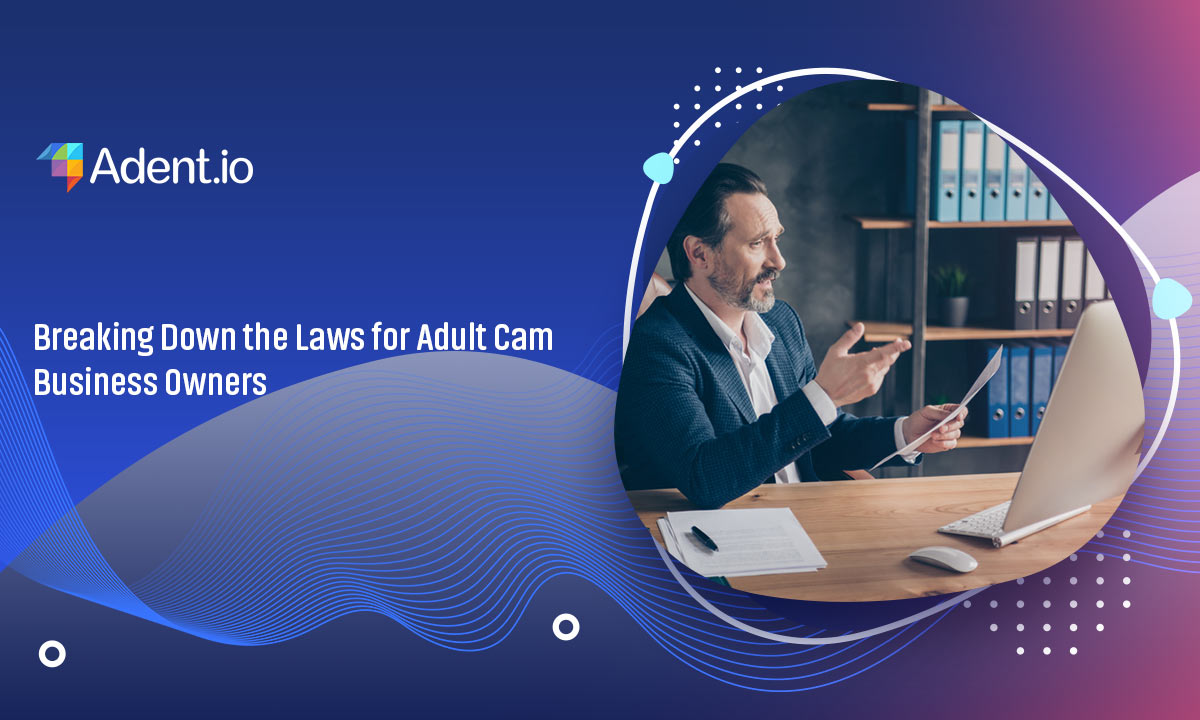The adult webcam industry is booming, but with great opportunity comes significant legal responsibility. As one of the most heavily regulated sectors, adult cam businesses face complex and ever-changing laws that vary across countries and even between states or regions.
From licensing requirements to content regulations, understanding the legal landscape is not just important while starting a webcam business but essential in protecting your business and avoiding costly penalties is essential. This guide breaks down the critical laws and compliance measures every adult cam business owner needs to know to operate safely and successfully.
Understanding the Legal Landscape
The adult cam business operates within a complex legal framework that spans federal, state, and international levels. Navigating these laws is essential for compliance and business longevity.
Federal Laws Governing Adult Entertainment
Key U.S. federal laws include 18 U.S.C. § 2257, which mandates strict age verification and record-keeping for all performers, and Section 230 of the Communications Decency Act, which offers platforms limited liability for user-generated content. However, businesses remain accountable for hosting illegal material, such as unverified explicit content.
State-Specific Regulations
State laws vary widely, with some focusing on zoning restrictions, labor classification, or content moderation. For example, California enforces strict worker classification rules that apply to even webcam businesses, while Florida imposes tight zoning regulations on adult businesses. Understanding local laws is crucial to avoid fines or legal challenges.
International Considerations for Global Platforms
Global platforms face additional complexities, such as GDPR compliance in the European Union, where failure to protect user data can lead to significant fines. Conversely, in regions like the Middle East or parts of Asia, adult content is outright illegal, requiring platforms to use geo-blocking to remain compliant.
Awareness of these legal nuances ensures your business operates within the law, protecting your platform and reputation.
Establishing a Legally Compliant Business
Starting and running an adult cam business requires more than a solid business model—it demands full legal compliance across multiple areas.
Business Registration and Licensing
Proper registration is the foundation of a legitimate business. Depending on the location, adult entertainment businesses may require specialized permits or licenses in addition to standard business registrations.
For example, most US states mandate that adult entertainment businesses, including webcam businesses, apply for a unique business license that includes background checks and zoning compliance.
Age Verification Laws and Practices
One of the most critical aspects of compliance is ensuring that all performers and users are of legal age. Failure to do so can result in severe penalties and legal action.
Laws such as the Pornography Age Verification Enforcement Act (PAVE) and state-specific bills like Utah SB 287 and Montana SB 544 mandate that commercial entities publishing or distributing material deemed harmful to minors online must implement reasonable age verification measures.
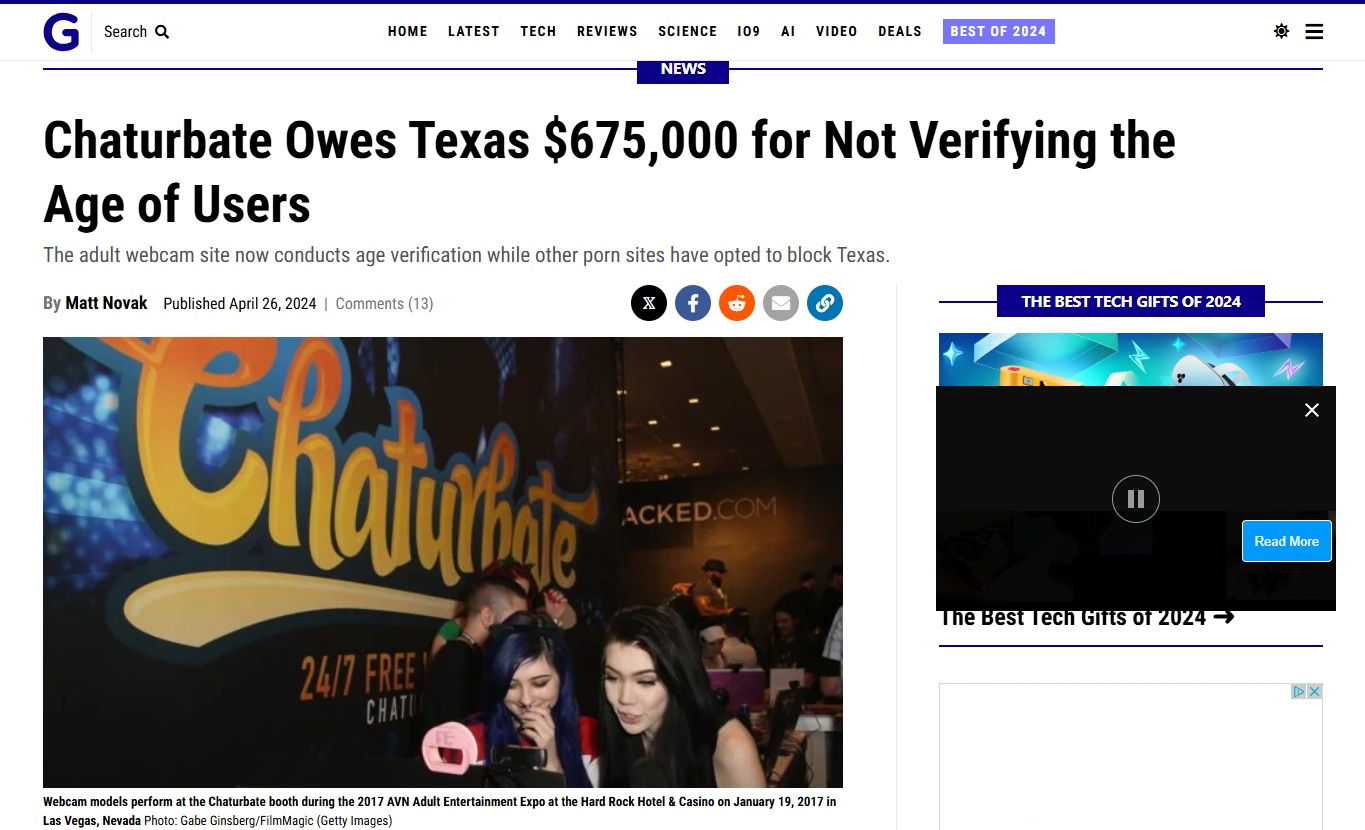
These regulations apply to websites where a substantial portion of the content qualifies as adult material, ensuring that individuals accessing such content are of legal age. Failing to comply with this law can result in fines and legal troubles.
Pro Tip: You can use top age verification software to complete the age verification process for your webcam site to avoid legal repercussions.
Record-Keeping Requirements (18 U.S.C. § 2257 Compliance)
The 18 U.S.C. § 2257 regulation obligates all producers of explicit content to maintain detailed records verifying that performers are 18 years or older. These records must be securely stored and made available for federal inspection.
Pro Tip: Appoint a compliance officer or use dedicated software to manage and store records securely, ensuring 24/7 availability for inspections.
Intellectual Property Laws: Protecting Content and Avoiding Infringement
In the digital age, safeguarding your content and avoiding IP violations are critical for business success.
Content Protection: To prevent unauthorized redistribution, protect your streams and recorded videos with watermarks and digital rights management (DRM).
Avoiding Infringement: Use only original or appropriately licensed content. Avoid using copyrighted music, imagery, or trademarks without permission. If you don’t have regular permission to use the licensed content, you might get in trouble.
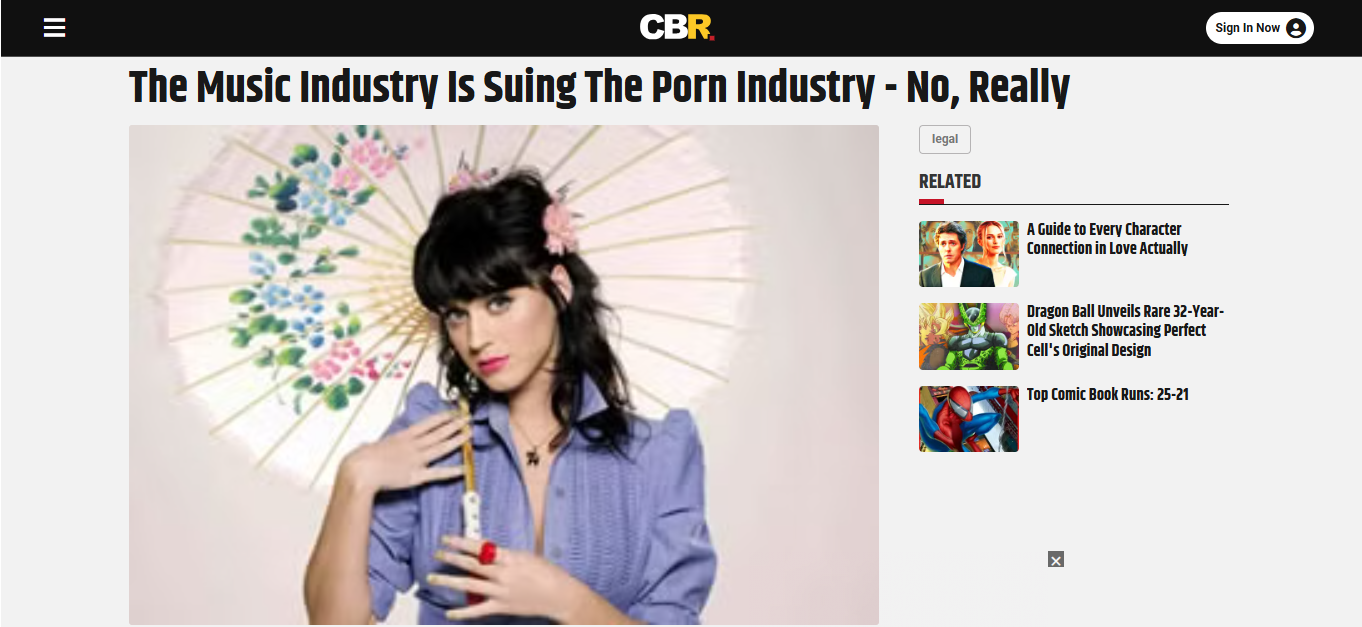
Content Creation and Performer Rights
Ensuring fair treatment of performers and protecting their rights is fundamental for any adult webcam business.
Contracts and Agreements with Performers
Clear, legally binding contracts are essential to outline performers’ rights, obligations, and compensation terms. These agreements help protect both parties in case of disputes and ensure compliance with labor and content laws.
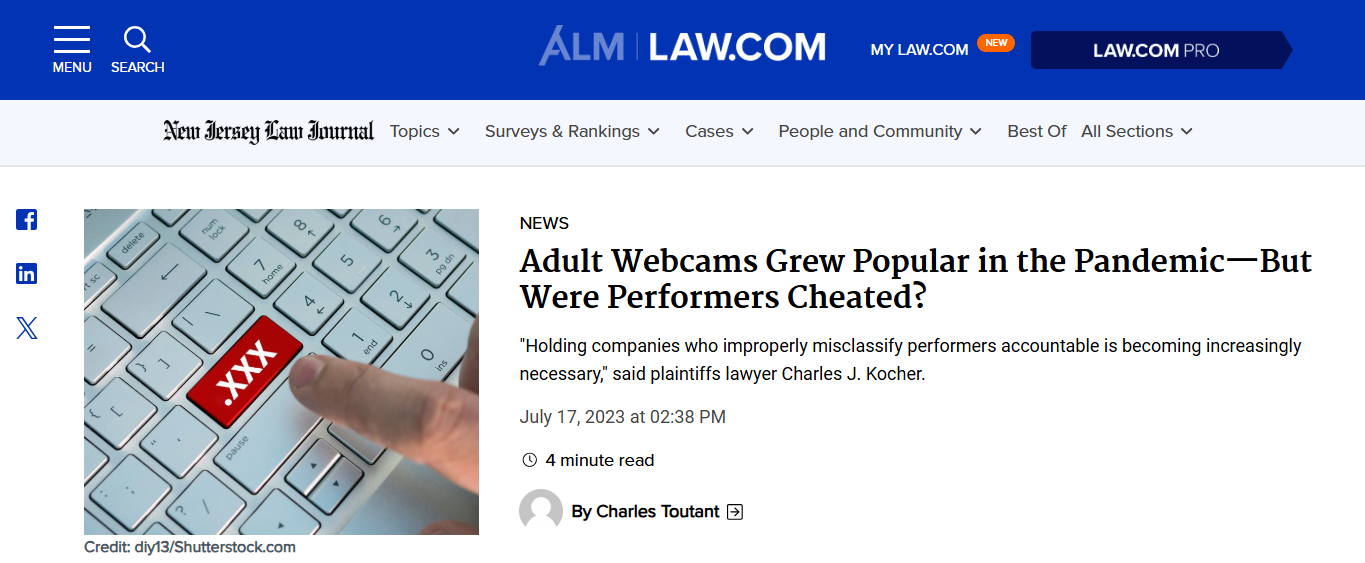
What to Include:
- Compensation and revenue-sharing terms
- Ownership and licensing rights for recorded content
- Consent for content use, including distribution and promotional materials
- Termination clauses and performer protections
Pro Tip: Always work with legal experts to draft detailed, performer-friendly contracts that comply with local and international laws. You can also visit websites like Avvo, where you will find legal advice from verified lawyers regarding webcam businesses.
Rights to Compensation and Revenue Sharing
Fair and transparent compensation is key to attracting and retaining talent. Most platforms follow a revenue-sharing model, in which performers earn a percentage of the revenue generated through tips, subscriptions, or paid content.
Standard Practices:
- Performers typically receive 30-60% of earnings on major platforms.
- Platforms retain the remaining percentage to cover operational costs like hosting, marketing, and payment processing fees.
Consent and Privacy Concerns in the Digital Space
In the adult entertainment industry, ensuring performers’ consent and protecting their privacy are non-negotiable. With growing concerns over content leaks and unauthorized sharing, platforms must prioritize performer safety and content control.
Consent Practices
Performers must provide written consent for content creation, distribution, and promotional use. Platforms should allow performers to withdraw consent under specific conditions (e.g., content removal requests). And this is something that you must consider even before you begin with your adult webcam website development, as it makes everybody’s life easy.
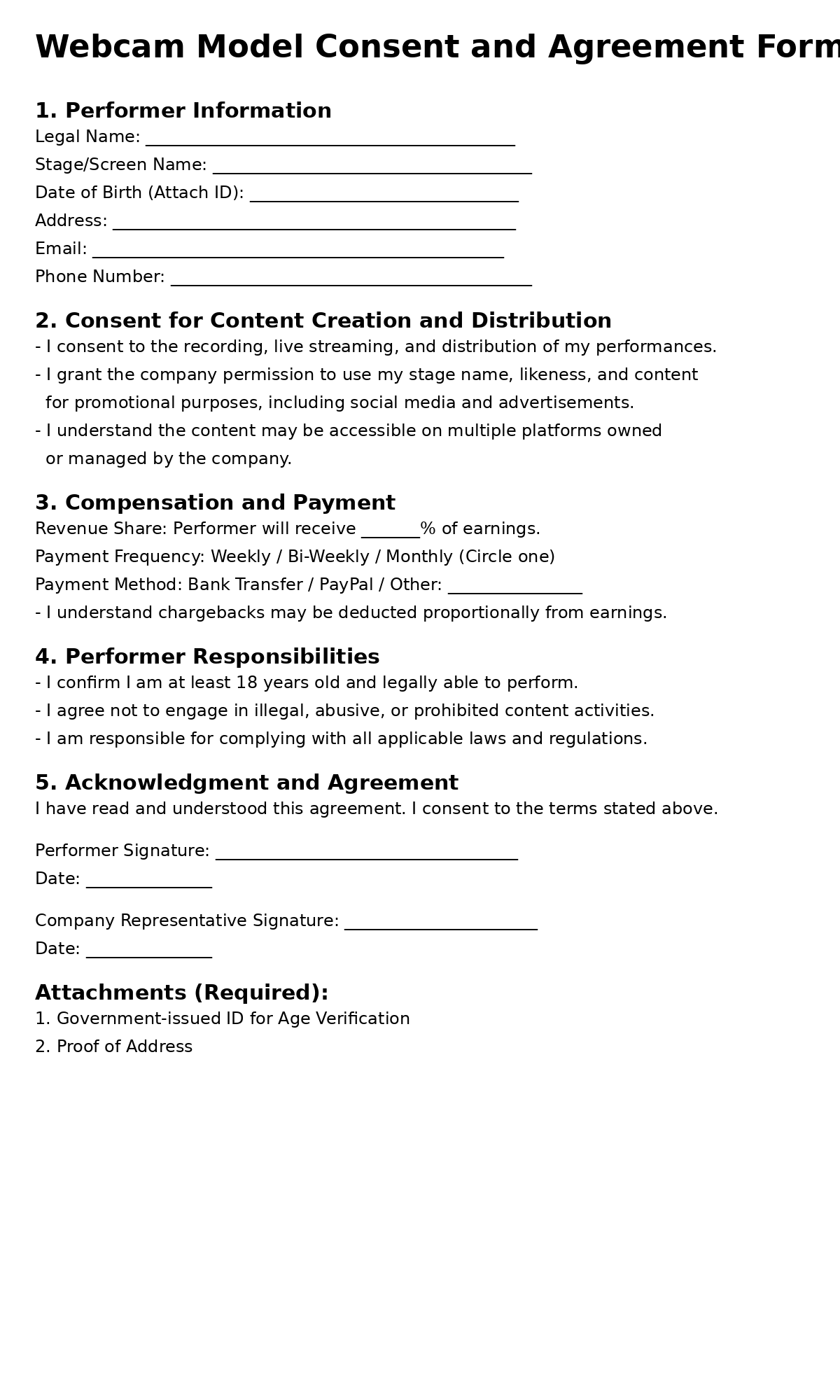
The above sample consent form can be used as a starting point for creating one for your webcam business. It is not the actual consent form but follows the same format.
Privacy Protections
Implement data encryption and secure hosting to prevent content leaks. Use tools like watermarks and digital rights management (DRM) to track and prevent piracy.
Tax Obligations and Financial Regulations
The adult webcam business, like any other industry, is subject to tax laws and financial regulations.
Reporting Income and Filing Taxes
Webcam businesses and performers are responsible for reporting all income earned, whether it’s from subscriptions, tips, or revenue-sharing agreements.
Income Categorization: In the U.S., webcam performers are often classified as independent contractors rather than employees, which means they must report income as self-employment earnings.
Self-Employment Tax: Performers are subject to self-employment taxes, which include Social Security and Medicare contributions. The current total for self-employment taxes in the United States is 15.3%.
Example: A performer earning $50,000 annually must allocate approximately $7,650 for self-employment tax, excluding federal and state income taxes. Failure to file taxes can result in penalties ranging from 5% to 25% of unpaid taxes.
Handling Payments and Chargebacks
Payments: Webcam businesses often use different payment processors and wallets, such as SegPay, CCBill or cryptocurrency platforms, to distribute performer earnings. However, these platforms have specific terms of service regarding adult content businesses. Violating these terms can result in account freezes or closure.
Chargebacks: Dealing with fraudulent chargebacks is a significant challenge for adult businesses. Customers may dispute transactions claiming unauthorized payments. Chargebacks result in lost revenue and may incur fees ranging from $15 to $25 per transaction.
Important: Implement strict verification measures to reduce fraudulent activity and partner with payment processors that understand the adult industry, like CCBill or Verotel
Banking Challenges in the Adult Industry
The adult industry often faces discrimination from traditional financial institutions, creating significant banking and payment processing barriers.
High-Risk Classification: Many banks and payment gateways classify adult entertainment businesses as “high-risk” due to potential chargebacks, legal scrutiny, and reputational concerns.
Account Closures: Businesses may face sudden account closures without warning, leading to operational disruptions.
Alternative Solutions:
High-Risk Merchant Accounts: Providers like CCBill and Verotel specialize in adult industry transactions.
Cryptocurrency Payments: Bitcoin and other cryptocurrencies are increasingly used as they bypass traditional banking restrictions.
Marketing and Advertising Compliance
Promoting adult webcam businesses comes with unique challenges due to strict regulations and platform restrictions.
Ad Restrictions and Guidelines for Adult Content
Most major advertising platforms, such as Google Ads and Facebook Ads, prohibit or heavily restrict adult content promotions. Even when allowed, strict guidelines must be followed.
They have strict regulations against adult advertisements on their platforms and tend to block accounts that use them for this purpose.
Best Practices:
- Focus on niche adult-friendly platforms like Pornhub Ads, TrafficJunky, or Exoclick.
- Use non-explicit creatives (logos, suggestive text) that comply with platform rules.
- Use email platforms for adult websites and the best email marketing strategies to promote your adult webcam business to gain traction.
SEO and Digital Marketing Laws
Search engine optimization (SEO) drives organic traffic to adult webcam websites. However, it must align with search engine guidelines and local regulations.
SEO Content Compliance:
- Content must not include illegal material or mislead users with deceptive titles and descriptions.
- Keywords targeting adult content should be responsibly used to avoid penalties.
Best Practices:
- Publish high-quality, legally compliant content (blogs, videos) to boost SEO rankings.
- Optimize websites for age verification to prevent legal issues in regulated markets.
Social Media Policies and Platform Rules
Social media platforms like Reddit, X, Instagram, and TikTok have policies regarding promoting adult content. Violations can result in content removal, account suspensions, or permanent bans.
- X and Reddit: Unlike other platforms, X (formerly Twitter) and Reddit permit adult content and are often considered great platforms for marketing your webcam business with proper labeling (sensitive content settings). Adult businesses can engage with followers organically but must follow the rules and regulations of the platform to use it effectively.
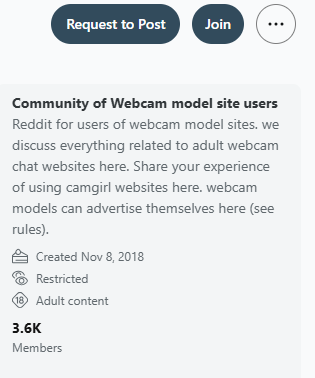
- Instagram and TikTok: Both platforms prohibit sexual content and often use automated filters to flag borderline material, even if compliant. Shadow-banning is common, limiting visibility for accounts posting suggestive content.
Addressing Common Legal Risks
Is operating a webcam business legal? Well, if you follow all the rules and regulations discussed above in the blog, then it sure is. Running an adult webcam business involves inherent legal risks requiring careful management, some of which we will discuss here.
Avoiding Obscenity and Indecency Violations
Obscenity laws vary by jurisdiction and can pose serious challenges for adult businesses. In the United States, the Miller Test determines whether content is obscene based on:
- Whether it appeals to the “prurient interest” of an average person.
- Whether it depicts sexual conduct in an offensive way as defined by state law.
- Whether it lacks “serious literary, artistic, political, or scientific value.”
While adult content is generally protected under the First Amendment, obscene material is not.
Important: Avoid producing or streaming content that could be deemed exploitative or offensive under local laws.
Handling Copyright and DMCA Claims
Copyright infringement is a significant risk for adult webcam businesses, particularly with user-uploaded content. The Digital Millennium Copyright Act (DMCA) provides a safe harbor for platforms hosting copyrighted content if they take prompt action to remove infringing material upon notification.
Managing Harassment, Doxxing, and Security Threats
Adult webcam performers and businesses face increasing risks of online harassment, doxxing (revealing private information), and cyberattacks. Such threats can impact performers’ safety and mental health while damaging business operations.
Best Practices:
- Implement robust cybersecurity measures to protect user and performer data.
- Use moderation tools to block abusive users and ban IPs of repeat offenders.
- Performers should protect their privacy by using stage names, VPNs, and separate business accounts.
- Platforms must include anti-harassment policies and reporting systems for addressing abuse.
Global Considerations for Cam Businesses
For adult webcam businesses operating internationally, navigating global regulations is essential to ensure compliance and business continuity.
GDPR Compliance for European Audiences
The General Data Protection Regulation (GDPR) applies to any business that collects or processes data from individuals within the European Union (EU), regardless of location. Due to the sensitive nature of user and performer data, GDPR compliance is critical for adult webcam businesses.
Key GDPR Requirements:
- Data Consent: Websites must obtain clear and explicit consent before collecting personal data (e.g., email addresses and payment information).
- Right to Erasure: Users can request the deletion of their data.
- Data Security: Businesses must protect stored data against breaches and unauthorized access.
Cross-Border Payment Systems and Taxes
Webcam businesses catering to international audiences must manage cross-border payments, exchange rates, and tax obligations. However, global payment processing is particularly challenging for adult businesses due to the “high-risk” classification of the industry.
Cross-Border Payment Solutions: Adult platforms often rely on high-risk payment processors like CCBill or Verotel, which facilitate multi-currency transactions.
Tax Implications: Businesses must account for Value Added Tax (VAT) in the EU. For example, digital services (like webcam streaming) sold to EU-based customers are subject to VAT, ranging from 17% to 27%, depending on the country.
Operating in Countries with Restricted Adult Content Laws
Laws governing adult content vary significantly across countries. While some regions permit adult content with regulations, others impose strict bans or criminal penalties for hosting or distributing adult material.
Middle East & Asia: Countries like Saudi Arabia, Oman, UAE, Pakistan, and China have strict laws against adult content, with penalties ranging from website blocks to criminal charges. So, it might be challenging to operate smoothly in these countries.
Europe & North America: While adult content is largely legal in North American and European countries, they impose strict age verification laws. Non-compliance can lead to heavy fines or access restrictions.
Conclusion
Running an adult webcam business requires navigating a complex legal landscape, from compliance with local and international laws to managing financial and operational challenges. By understanding regulations like GDPR, implementing robust age verification systems, and addressing common risks such as copyright claims and harassment, businesses can operate successfully and sustainably.
Staying informed, proactive, and compliant ensures legal safety and builds trust with performers and audiences, which will help you start your webcam business and get on the right path to success.
FAQs About Laws for Adult Cam Business
1. What licenses do I need to operate an adult cam business?
To operate an adult cam business, you’ll need a general business license and any local or state-specific permits required for adult entertainment. Additionally, compliance with age verification laws and record-keeping regulations, such as 18 U.S.C. §2257 in the U.S., is essential. As legal requirements vary by jurisdiction, it’s crucial to consult local laws to ensure full compliance.
2. Are there laws regulating how I pay cam models?
Yes, there are laws regulating how you pay cam models, including ensuring compliance with labor laws, tax reporting requirements, and age verification. Payment systems must adhere to financial regulations, and businesses must report income accurately for tax purposes.
3. How can I protect my business from legal risks?
Protect your business from legal risks, ensure compliance with local and international laws, implement strict age verification processes, use secure payment systems, maintain proper contracts with performers, and protect intellectual property. Consulting with legal professionals is also crucial.
Hi
Start Growing Your Dream Business
with Us!
Aaron
Chief Operating Officer at Adent.io
As the COO of Adent.io, Aaron leads with a vision of innovation, quality, and ethical standards in the adult digital landscape. With over a decade of experience in software solutions tailored for the adult industry, Aaron has played a pivotal role in transforming Adent.io into a trusted name for ready-made adult scripts. These scripts are designed to empower entrepreneurs to build and grow adult websites, from tube sites to membership and webcam platforms, with security and efficiency.

